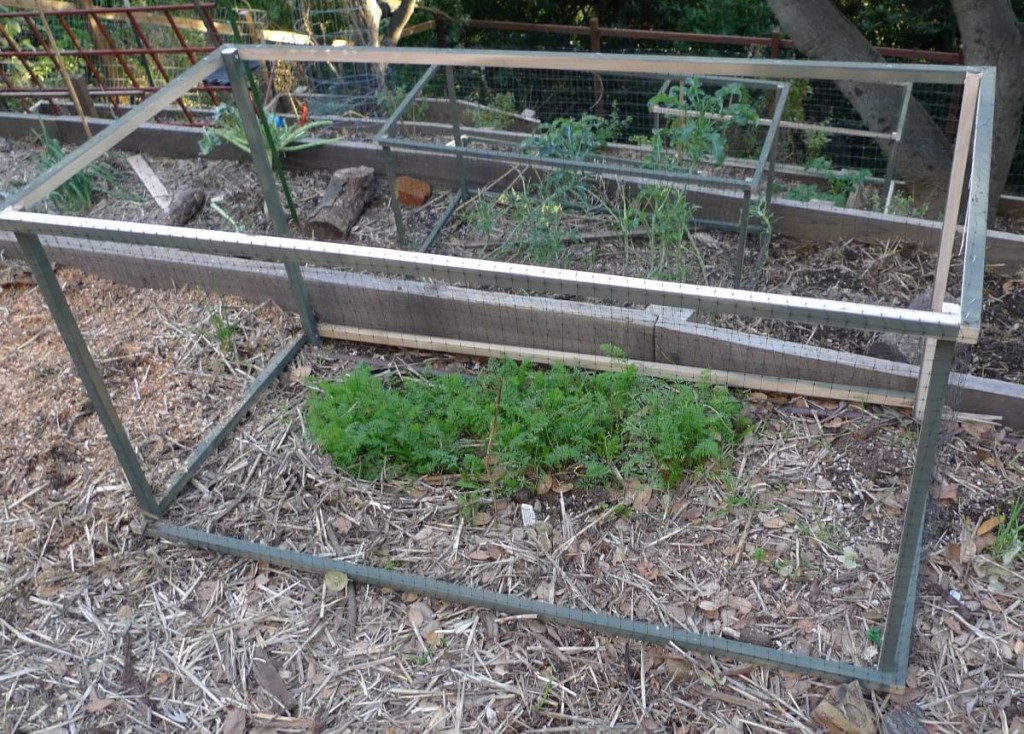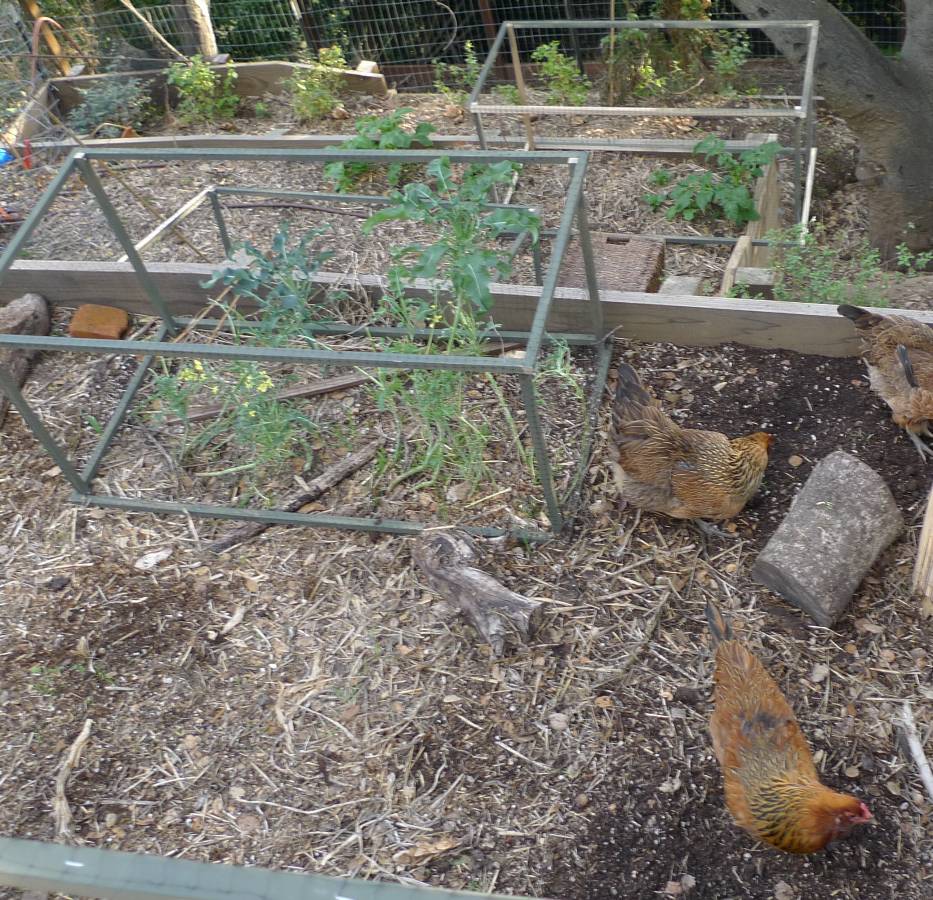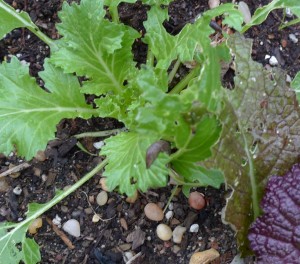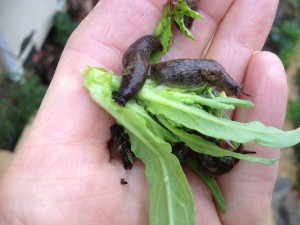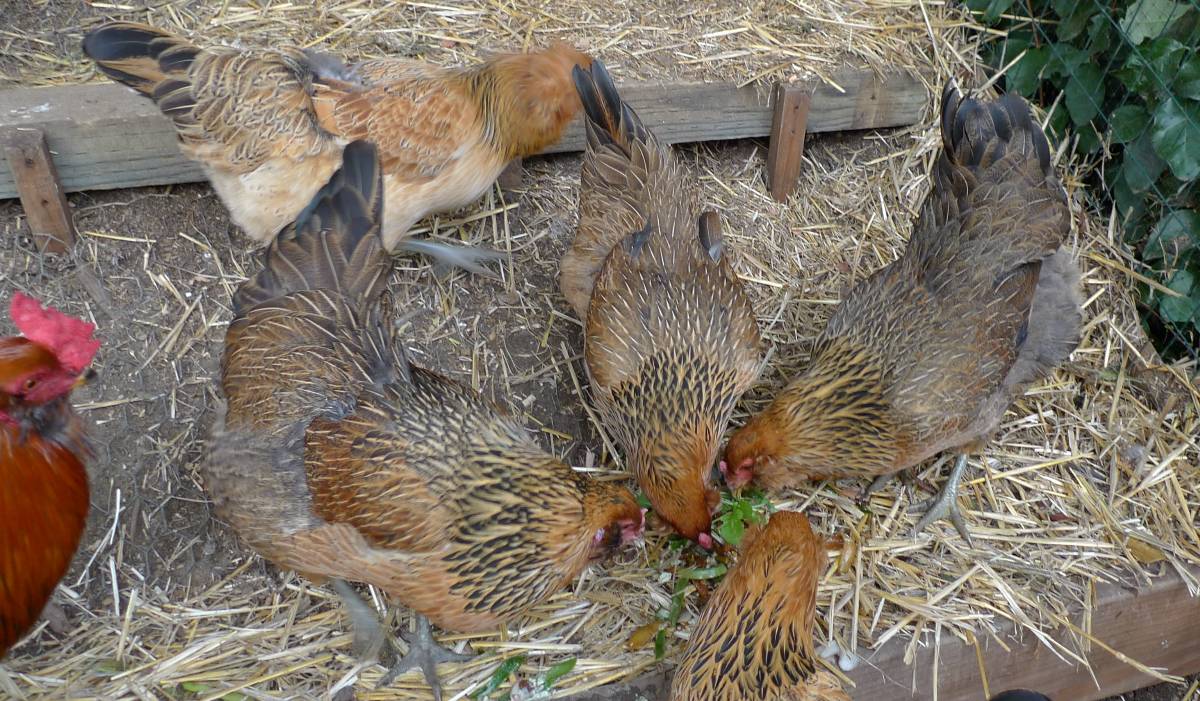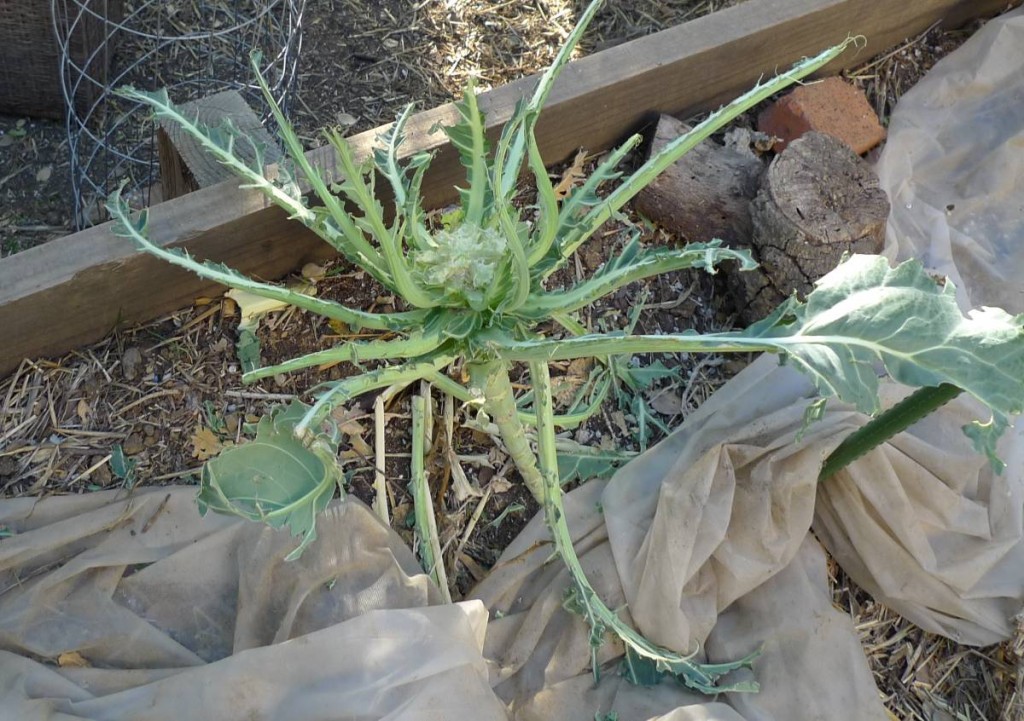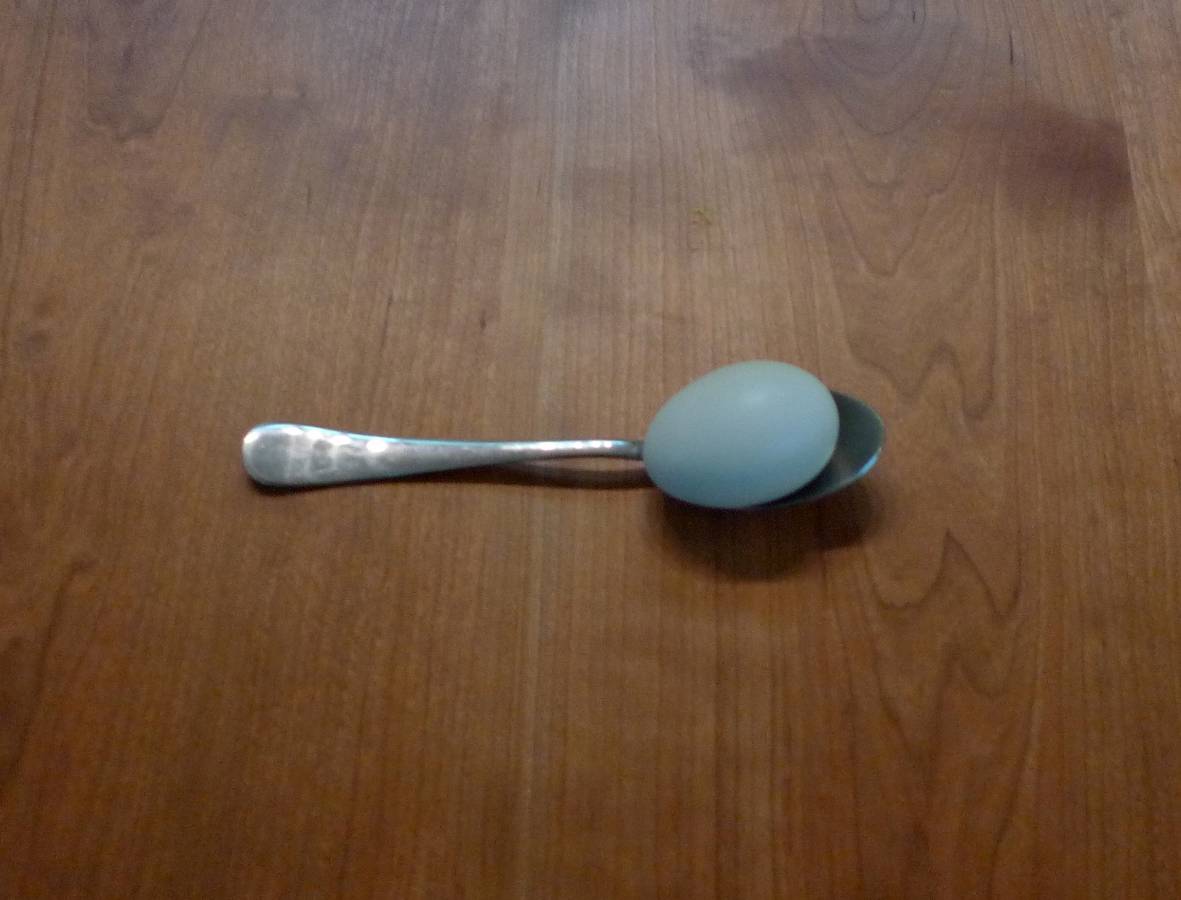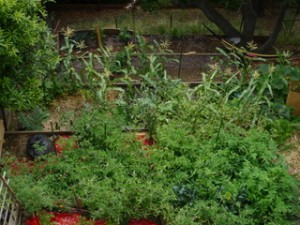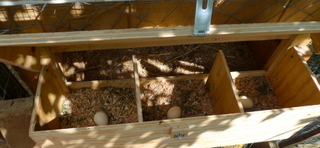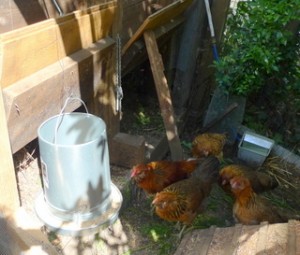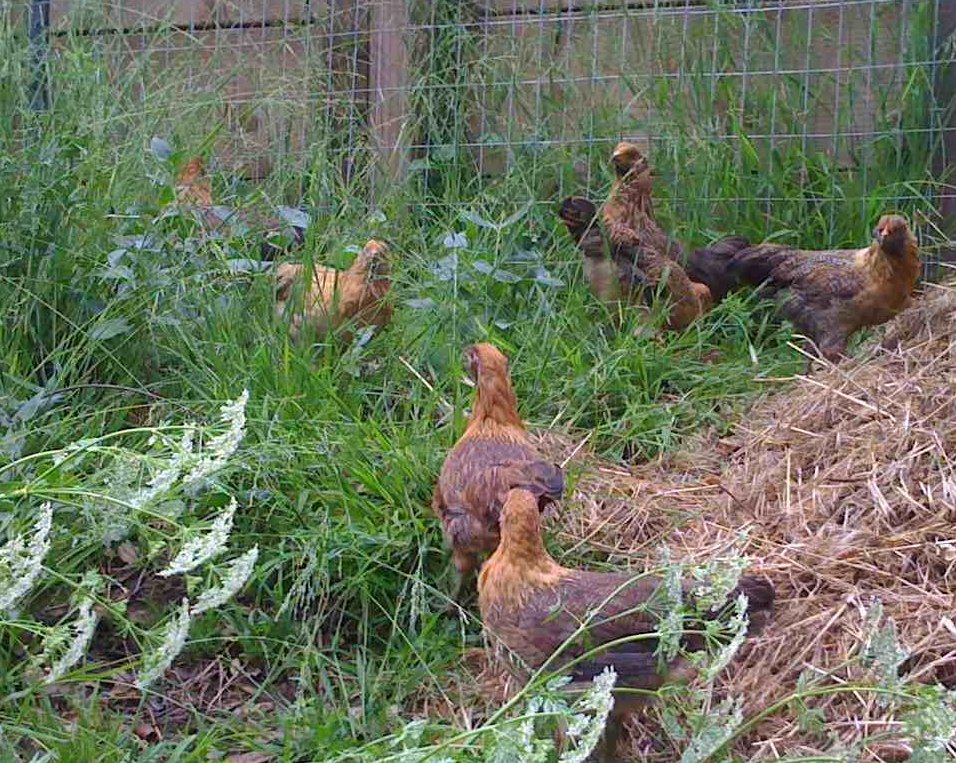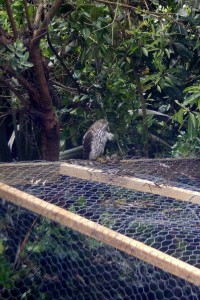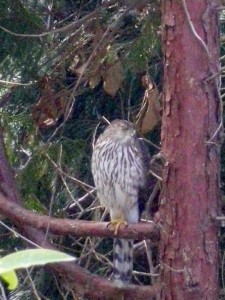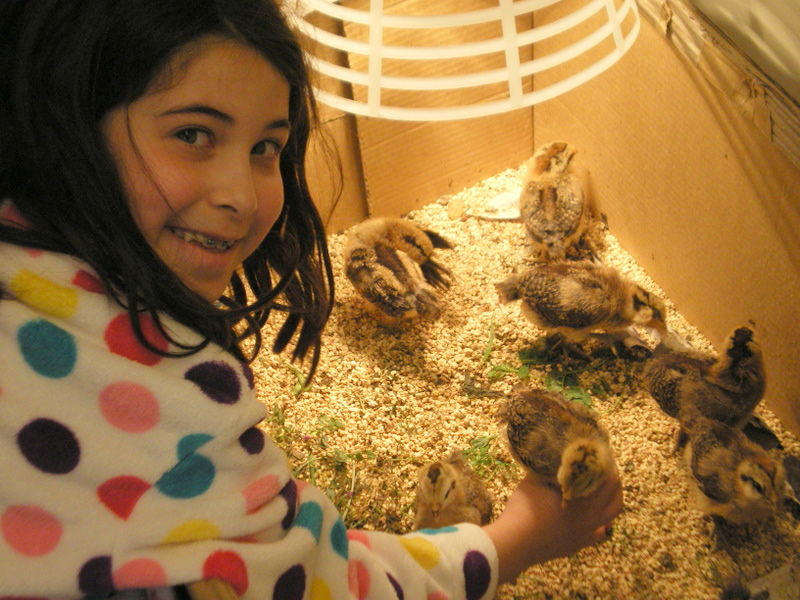
It seems to me that chickens are the perfect eco-accessory. Here they are, a few days old, when they were still in the laundry room.
They grow quickly, provide eggs and meat, and are omnivores. I ground up the remains of the fish stock and they gobbled it—no more smelly mess in the garbage. They eat weeds, bugs, snails and slugs. I’m planning to make a “chicken tractor” to move them around to various parts of the garden. I wonder if I’d still like them as much without the knowledge of future eggs? There is really no comparison between the eggs from a backyard chicken that gets to roam and eat grass and bugs to those sold commercially. Larry says the yolks are the color of a Van Gogh sun. Of course, here in the suburbs, no roosters, which is too bad. I understand that others may not be charmed by the rooster alarm clock. They do crow incessantly, starting before dawn. When I was in Puerto Rico, surrounded by households with roosters I wondered: is a rooster’s crow the sound of poverty or of affluence? In any case, a small, well-tended flock of chickens is pretty delightful. I saw this poem about chickens years ago and saved it.
Passing a Truck Full of Chickens at Night on Highway Eighty
Some were pulled by the wind from moving
to the ends of the stacked cages,
some had their heads blown through the bars—
and could not get them in again.
Some hung there like that—dead—
their own feathers blowing, clotting
in their faces. Then
I saw the one that made me slow some—
I lingered there beside her for five miles.
She had pushed her head through the space
between bars—to get a better view.
She had the look of a dog in the back
of a pickup, that eager look of a dog
who knows she’s being taken along.
She craned her neck.
She looked around, watched me, then
strained to see over the car—strained
to see what happened beyond.
That is the chicken I want to be.
Jane Mead, The Lord and the General Din of the World
I don’t know anything about Jane Mead, but the following poem, also about a bird seen driving at night, was written by a woman who died fairly young from a chronic and degenerative disease. It’s a level darker and deeper:
Night Owl
You are nearing the land that is life,
You will recognize it by its seriousness.
Rilke
Diving my bad news the back way home
I know I’m in the land that is life
when I reach my favorite stretch of road—fields
flat and wide where corn appears soon after
planting the soil tilled, night-soaked
and crumbled into fists.
Ferguson’s barn is somewhere
at the end of this long arm of tar
and as I near it, something grazes the back
passenger-side door, luffs parallel to my car—
a huge owl on headlight spray floating,
holding night over the hood to see
if this moving thing is real, alive,
something to kill—then gliding in
close as if to taste glass.
The road levitates, buffeted on a surf
of light, the fog-eaten farm disappearing
as I ride into starlessness, cells conspiring
so I am bright-flecked and uplifted—is this
what it feels like to be chosen—to be taken
under the wing of something vast
that knows its way blindly?
M. Wyrebek, Be Properly Scared
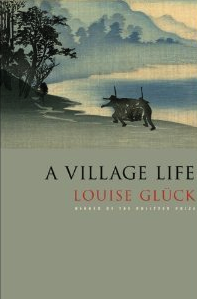 I didn’t know that Louise Gluck pronounced her name to rhyme with “click,” but that’s how it is. She read on Thursday night at Moe’s (yes, we still have a few bookstores in Berkeley!). It was a pleasure to listen to her read though she announced at the start that she doesn’t like to read. I had to strain to hear, but it was worth it. She read from her new book, A Village Life.
I didn’t know that Louise Gluck pronounced her name to rhyme with “click,” but that’s how it is. She read on Thursday night at Moe’s (yes, we still have a few bookstores in Berkeley!). It was a pleasure to listen to her read though she announced at the start that she doesn’t like to read. I had to strain to hear, but it was worth it. She read from her new book, A Village Life.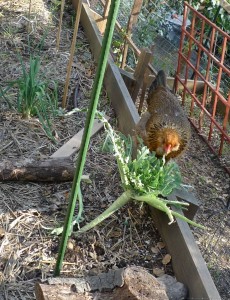 Earlier that day (here is the cluck part) my wonderful friend and expert builder, Jeannie, finished creating a set of plant protection boxes for my garden. Now that it’s planting season, I’d like to let the chickens out to weed and fertilize, but you may remember what they do to anything that grows.
Earlier that day (here is the cluck part) my wonderful friend and expert builder, Jeannie, finished creating a set of plant protection boxes for my garden. Now that it’s planting season, I’d like to let the chickens out to weed and fertilize, but you may remember what they do to anything that grows.